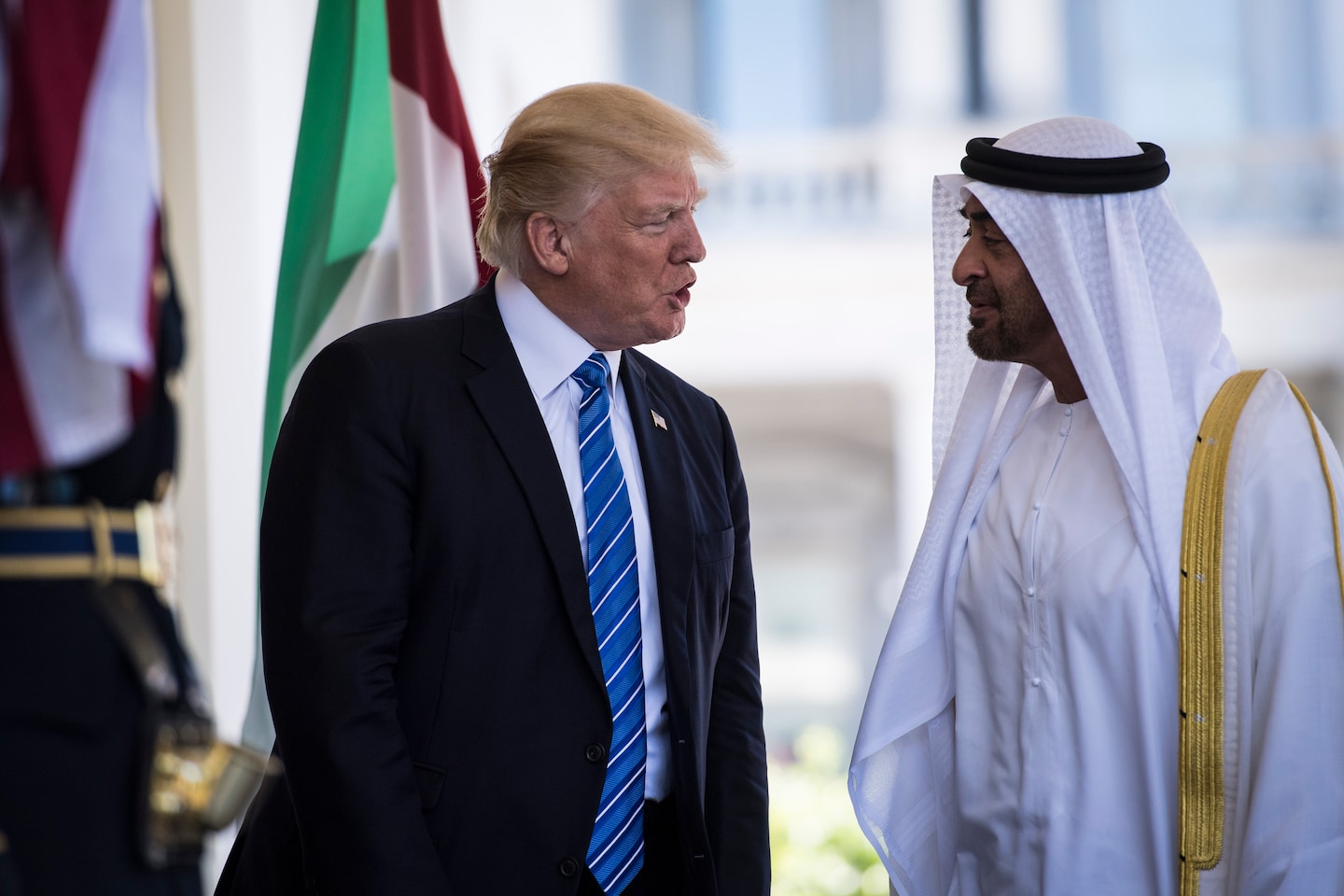The UAE has provided a dose of reality in Middle East realpolitik

Yes, a century: In the aftermath of World War I, the victorious colonialists of Britain and France carved up authority over remnants of the defeated Ottoman Empire. The exercise was not a smashing success for anyone involved. But from that turbulent process came a period of British authority over lands spanning the River Jordan, whose rich and contentious history — the first few thousand years, anyway — is recorded in the Bible. From the outset of the British Mandate, as this period was known, the government in London supported the right of the Jewish diaspora around the world to return to a portion of this land and establish a nation.
After World War II, a period of brutal fighting accomplished on the ground what had been promised in theory by British Foreign Minister Arthur Balfour, and in 1948, the United States gave its blessing to the state of Israel. The rest of the British Mandate became the nation of Jordan, and two attempts by neighboring countries to erase the Jewish state, in 1967 and 1973, were easily defeated.
There is nothing particularly unusual about this story. For much of history, the world was organized by violence into empires. Over the past couple of centuries, empires have been reorganized, by a combination of violence and diplomacy, into nation-states. It’s the story of not just the Middle East but also of North and South America, Europe, Asia and Africa.
But something about this particular nation-state has been a rock in the world’s shoe. The stubborn sickness of anti-Semitism is undeniably part of the explanation. A second factor is the uniquely transnational nature of Jerusalem, which, though located in Israel, is a place of profound significance to multiple cultures.
A third factor, closely related to the first, has been the usefulness to various despots in the Middle East of the fiction that Israel’s very existence remained an open question. Populations inflamed against Israel might not notice that their leaders have beggared their countries for personal gain. “Death to Israel” is a slogan that has enabled decades of oppression of Middle Eastern peoples.
None more than the Palestinians. They could be celebrating the 20th anniversary of an independent state about now; instead, they remain perpetual refugees due in large part to decisions made in places such as Riyadh and Tehran in pursuit of agendas that have little to do with them except to extend their suffering.
Now the most dynamic and powerful leader of the Arab world, the crown prince of Abu Dhabi, Mohammed bin Zayed, has called an end to the self-defeating denial of the fact of Israel. In exchange, MBZ — as he’s known in capitals around the world — forestalled Israel’s planned annexation of Jewish settlements in the West Bank and thereby refreshed the bare possibility of a Palestinian state.
MBZ is no liberal. His power stems from his military might, which rests on a foundation of oil money. But he is a 21st-century man in a region besotted with 11th-century nostalgia. The gleaming cities of the UAE offer an inspiring alternative for neighboring countries to the dreary prospect of Wahhabi fundamentalism, Baathist gangsterism or the tyranny of mullahs. The prince is wise enough to understand that a future-oriented Muslim believer like himself has less to fear from Israel than from the extremists of his own faith.
Arab recognition of Israel is now very close to critical mass. The most populous Arab nation, Egypt, has taken the step; Jordan, home to the largest number of Palestinians, followed. The UAE is not only the region’s most successful Arab state; MBZ is the patron and mentor of Saudi Crown Prince Mohammed bin Salman, who is known, in a bit of homage, as MBS.
The young Saudi ruler carries his own historical baggage as he seeks to follow his role model’s footsteps into a less oil-dependent future. During the century of stalemate, MBS’s family, the House of Saud, has been the primary funder of Islamist fundamentalism around the world. For that reason, putting the past in the rear-view mirror is more fraught for him — but no less necessary.
This version of peace is no summer of love in the Middle East, nor is it another misunderstood Arab Spring. It is realpolitik, a gritty weighing of national interests and balancing of rivalries. But in finally coming to grips with the fact that Israel is here to stay, there is a dose of reality in the realpolitik. And that’s progress.
Read more:






